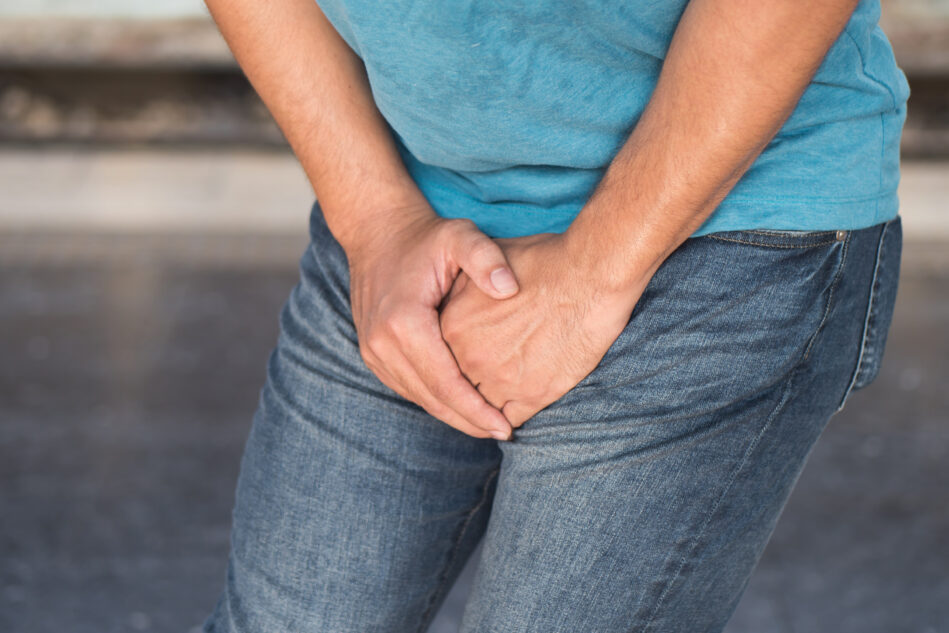Having trouble urinating but not ready to go the medicine route? Here are some drug-free tips and tricks for helping the flow.
It’s a fact that as men age, the prostate enlarges, and that causes frequent, sometimes painful urination. But you don’t have to reach for a pill or submit to surgery. Small behavior changes can help you cope with — and maybe minimize — the amount of peeing.
I scoured the web to find easy tips for men who find themselves in the bathroom too often. I can’t vouch for the effectiveness of any of these tips as I don’t have a prostate (being female and all that). But they seem logical, noninvasive and a good place to start.
Warning: Check with your doctor to make sure that your frequent urination is caused by an enlarged prostate, also known as BPH (benign prostatic hyperplasia). Sometimes this can be a symptom of a more serious condition.
Near Universal Recommendations
The Mayo Clinic offers this list, which is common to many great resources:
- Limit beverages (especially caffeine and alcohol) for at least an hour before bed.
- Don’t wait — go when you need to. The discomfort will only get worse.
- Exercise and lose weight if you need to. Obesity is tied to BPH. Exercise keeps all of your muscles fit and your organs working better.
- Urinate, and then urinate again a few moments later. The Mayo Clinic recommends this practice, which is known as double voiding.
Avoid Certain OTC Meds
Avoid over-the-counter cold or allergy drugs and sleep aids that contain antihistamines or decongestants as these may worsen symptoms, according to Berkeley Wellness. Review your medications with your doctor or pharmacist.
Schedule Bathroom Visits
Urinating at regular times — such as every 4 to 6 hours during the day — may help to “retrain” the bladder. This can be especially useful if you have severe frequency and urgency.
If you cannot empty your bladder, try sitting when you urinate rather than standing. Running the water in the sink may help.
Keep Warm
Colder temperatures can cause urine retention and increase the urgency to urinate.
Strengthen Pelvic Muscles
Kegel exercises can help you strengthen the muscles of the pelvic floor that support your bladder and urethra, thereby helping to prevent or reduce the symptoms of incontinence. The Mayo Clinic has a how-to guide to Kegel exercises for men.
Healthline suggests 5 yoga poses that can help with enlarged prostates.
Vitamin C, Zinc & Other Diet Tips
According to Charak‘s Ayurvedic approach, you should eat vegetables that are high in vitamin C and zinc. Plant proteins such as beans and lentils, soy isoflavones are a better choice than animal proteins such as eggs. Fruits and vegetables contain high levels of inflammation-fighting substances such as antioxidants, polyphenols, vitamins, minerals and fiber. Consume more of healthy fats, e.g., omega-3 fatty acids found in foods such as avocados, nuts, cold-water fatty fish and olive oil. Avoid sugary, salty and spicy foods.
Do Home Remedies Work?
There were tons of websites suggesting home remedies such as steeping pumpkin seeds or corn silk to make teas of them, or taking supplements of individual minerals or combinations that those sites sold. I avoid including this type of information because I respect the potency of vitamins and minerals. It can take years for the dangers of these additives to become evident and since they are so rarely studied, we may never know the risks of them. Therefore, I treat them as carefully as I do medicines.
So many websites recommended saw palmetto extract for enlarged prostate that I looked further into it. Here is a brief summary of the key research, according to the Harvard Medical School site.
A research study published in the New England Journal of Medicine put it this way: “In an effort to determine how well saw palmetto reduces symptoms of BPH, researchers randomly assigned 225 men over age 49 with moderate to severe BPH symptoms to one of two groups. One group took 160 mg of saw palmetto extract twice a day; the other received a placebo. At the end of one year, there was no significant difference in the two groups in symptoms such as prostate size, PSA level, or maximal urinary flow.”






